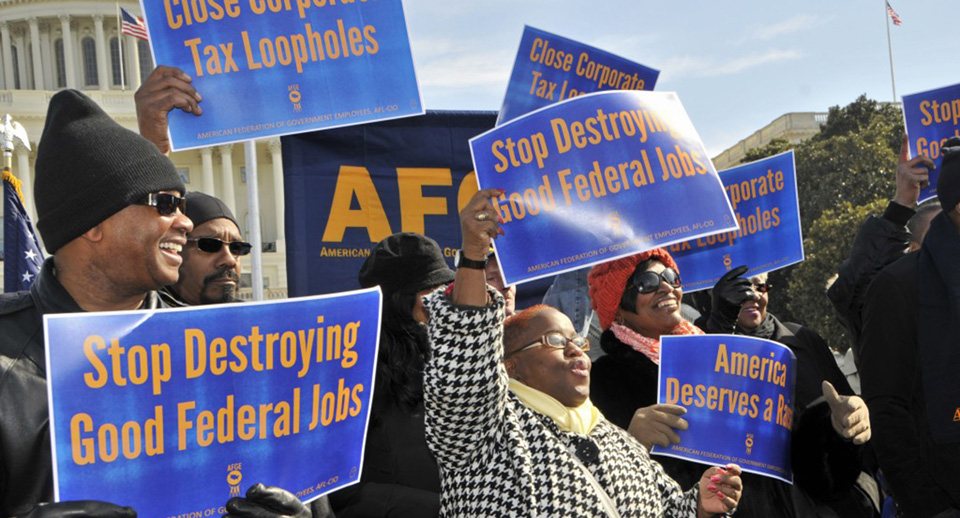
WASHINGTON — The presidents of the two largest unions representing federal employees, the American Federation of Government Employees (AFGE) and the National Treasury Employees Union (NTEU) are protesting job cuts ordered by the Trump administration.
They point out that the proposed cuts would actually cost the government more than retaining the current number of workers. Worker efficiency would suffer, they say, and by letting OMB shift more work to unaccountable, more highly paid for-profit companies, tax money would be wasted.
Trump’s head of the Office of Management and Budget (OMB), Mick Mulvaney, unveiled the administration’s goal in an early April memo to the heads of federal agencies, telling them to submit their job cut plans by the end of June. Implementation is scheduled for fiscal 2019, which starts Oct. 1, 2018.
Mulvaney also wants agencies to “begin … near-term workforce reductions … ” even before submitting cut plans.
Mulvaney’s memo and his command to agencies to start formulating job cut plans replaces Trump’s executive order which imposed a hiring freeze on all agencies except those handling national security.
In a written statement, AFGE President J. David Cox says that Mulvaney’s memo contained one good idea: cutting down the layers of management in federal agencies.
However, Cox says, most of Mulvaney’s order is a cover for handing federal government services over to for-profit companies.
“… throughout the memorandum,” Cox says, “is [the idea] that even more work should be outsourced to costly and unaccountable contractors.”
He notes that in Fiscal Year 2016, outside contractors cost the federal government $450 billion, more than double the $200 billion the government paid its civilian workers.
“Nobody knows precisely what these contractors do,” Cox writes, “how well they do it, who they’re hiring, or where they’re working. In contrast, the data on federal employees’ jobs, pay, productivity, demographics, and location are completely transparent and widely scrutinized, as is appropriate.
“Shifting even more government work to these profiteers who operate in the shadows is the opposite of government accountability or fiscal prudence.”
Cox continues, Mulvaney’s memo “seems to be little more than opening the door to increased contracting-out of agency functions and services. The functions of government need to be performed and when there are not enough federal employees to do the work, agencies simply shift it to unaccountable private-sector contractors.
“The idea that all or most federal jobs are somehow unnecessary or redundant, or should be producing a profit for politically well-connected contractors has no place in any serious plan for government efficiency,” Cox concludes.
NTEU President Tony Reardon says in his statement, that many agencies are already short-staffed, thanks to past budget cuts, sequestration and pay freezes.
Overall, cuts are “decimating workforces, driving talented people out of government and placing increasingly impossible workloads on the backs of dedicated employees struggling to get it all done,” Reardon says. “Cuts need to be reversed. Shrinking workforces and increasing contracting out is not a recipe for improving government operations.
“It is a recipe for disaster.”










